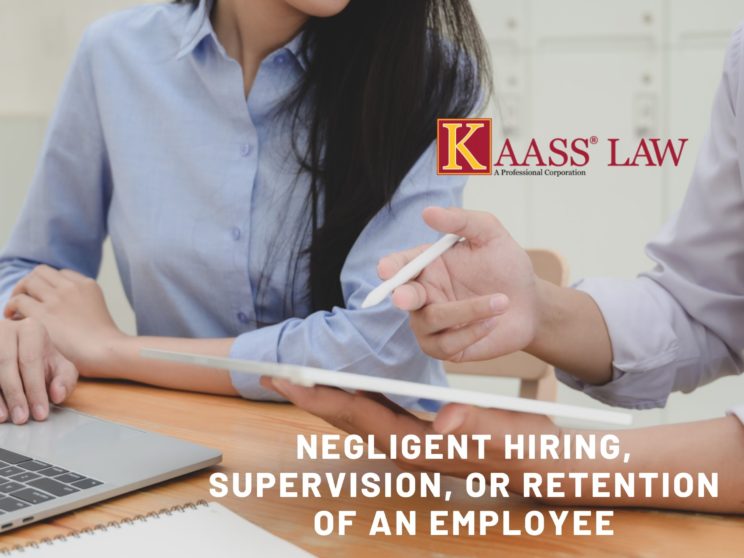Negligent Hiring or Supervision of an Employee in California
Usually, injuries take place in a place of business, or the accident occurs due to the negligence of an employee in any other place. California law gives the injured person the right to sue and recover damages from the employer who is liable for the negligent hiring or supervision of the employee.
California Civil Jury Instruction (CACI) 426 clearly explains the elements that must be proven for convicting the employer in negligent hiring and/or supervising the employee:
- The employer hired the employee
- The employee was or became incompetent or unfit or to perform the work for which he was hired, or exposed others to a particular risk
- The employer knew or should have known that the employee was or became incompetent or unfit or to perform the work
- The employee’s incompetence, unfitness, or risk factors caused the victim harm
- The employer’s negligence in hiring, supervising or retaining the employee was a substantial factor in causing harm to the victim.
What Is Considered to Be an Employer in California?
According to California law, employee is any person subject to the direct control of an employer. Such people consist not only of salaried employees also of temporary workers, per diem overflow workers, independent contractors, agents, and third parties such as security guards.
Knowledge as an Element of Negligent Hiring
For being liable for negligent hiring, supervision, or retention the employer should have known or been on notice that the employee was incompetent or unable to perform the work.
According to California Civil Code Section 1714, every person is responsible for injuries caused by their want of ordinary care or skill in the management of their person or property. But this rule applies only in case the employee was acting within the scope of employment. So the employer is liable in case the employee was doing his job, carrying out company business, or otherwise acting on the employer’s behalf when the accident happened.
Legal Defenses for CACI 426
- The employee acted intentionally
An employer cannot be liable in case the employee committed intentionally wrongful acts. But if the employer knew or reasonably should have known about the employee’s intention to engage in an illegal act, the employer can still be liable for negligent hiring or supervision.
- The employee was not acting within the scope of the employment at the time of the accident
Employers can’t be liable for the negligent or intentional actions of the employee which fall outside of the scope and course of the employment, because the consequences are unrelated to the employer.
How to Avoid Claims of Negligent Hiring or Retention?
Here are a few actions the employer can undertake to avoid claims of negligent hiring or retention
- Perform background checks. The employer must verify information on resumes, check driving records, and look for criminal convictions. These steps will weed out many employees and help the employer show that he was not negligent in the hiring practices.
- Pay special attention when hiring certain types of employers
- Schools owe a duty of care to protect students from predictable injuries by third parties. This includes negligence by school personnel, teachers, and other students
- Transportation network companies are obliged to check the criminal background of the drivers before hiring them.
- Employees who have a deal with vulnerable people such as children, the elderly, or people with disabilities require more careful screening.

